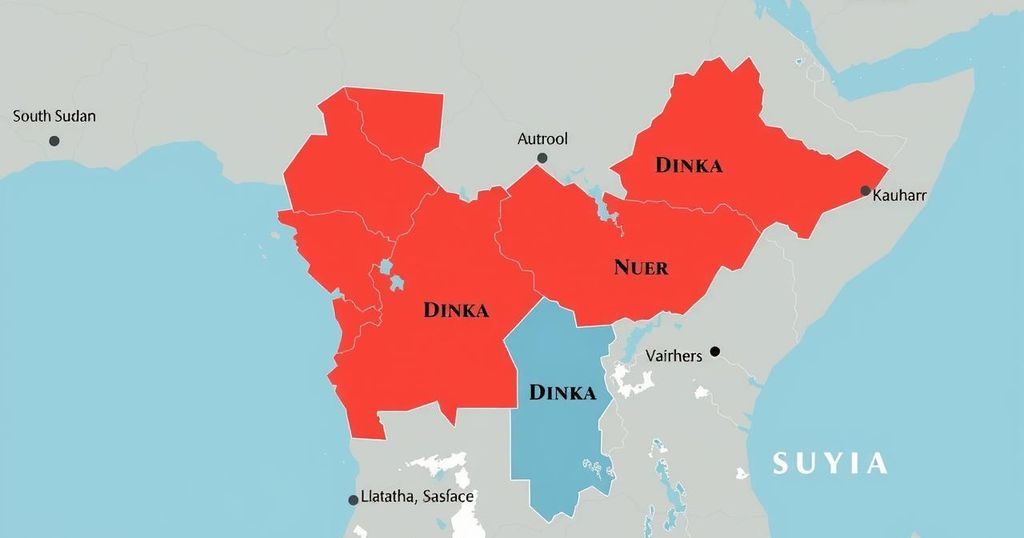South Sudan Faces Risk of Civil War Amidst Unrest and Peace Deal Collapse
South Sudan is on the brink of civil war as a peace deal faces collapse following the arrest of opposition leader Riek Machar. Tensions between Kiir and Machar’s factions escalate amid Ugandan military involvement and ethnic conflict, prompting international calls for ceasefire. A significant humanitarian crisis looms, with the majority of the population living in extreme poverty.
South Sudan, the world’s youngest country, is at risk of falling back into civil war as a fragile peace deal, established after years of conflict, is threatened. Since its split from Sudan in 2011, South Sudan has struggled with internal strife marked by ethnic divisions and violent uprisings. The most recent civil wars, which began in 2013 and 2016, were curtailed by a peace agreement in 2018. However, recent developments indicate a serious crisis may be imminent.
Governance in South Sudan is provided by a coalition, led by President Salva Kiir and five vice presidents, including Riek Machar, head of the SPLM/A-IO party. Machar’s recent arrest has prompted strong statements from the SPLM/A-IO, declaring that his detention may effectively collapse the existing peace agreement.
Machar’s arrest followed the detainment of prominent SPLM/A-IO officials and coincided with Ugandan military involvement, requested by President Kiir to counteract a local militia. The SPLM/A-IO denounced Uganda’s military actions as aggression against civilians. Machar himself labeled this intervention a violation of the peace deal in a letter to the UN Secretary-General.
South Sudan has yet to conduct national elections; its current leadership comes from a power-sharing arrangement reached in 2018, created in the aftermath of a civil war that resulted in approximately 400,000 fatalities. The country remains deeply divided along ethnic lines, particularly between Kiir’s Dinka tribe and Machar’s Nuer people, with recent clashes indicating rising tensions.
Authorities have accused Machar of inciting rebellion and aligning with the White Army militia, which he denies. Government officials allege that his actions threaten to undermine peace and prevent elections, suggesting Machar will face serious scrutiny. Meanwhile, the SPLM/A-IO has refrained from addressing these accusations publicly.
International reactions have been swift. United Nations representatives have warned that Machar’s arrest moves South Sudan closer to civil war, with UN Secretary-General Antonio Guterres noting the lack of stability in the peace agreement. Western nations have issued statements urging a ceasefire and the reversal of Machar’s arrest. Concurrently, the US has recommended that its citizens leave the country due to the escalating situation, with the African Union offering to mediate discussions.
Conditions in South Sudan are dire, with reports from the World Bank highlighting violence and mismanagement as exacerbating factors for widespread poverty and humanitarian crises. More than two-thirds of its population lives on less than $2.15 per day amidst waves of internal displacement and pressures from neighboring conflicts. The UN has characterized South Sudan as “a country on the edge,” emphasizing the need for immediate global attention to prevent further calamity in the region.
The situation in South Sudan is critical, as the potential collapse of the peace agreement and escalating tensions threaten to revert the nation to civil war. With ethnic divisions continuing to fuel conflict, both domestic and international stakeholders have a vested interest in restoring stability. The upcoming weeks will be crucial in determining whether South Sudan can navigate this precarious moment and avoid descent into deeper chaos.
Original Source: www.wral.com




Post Comment